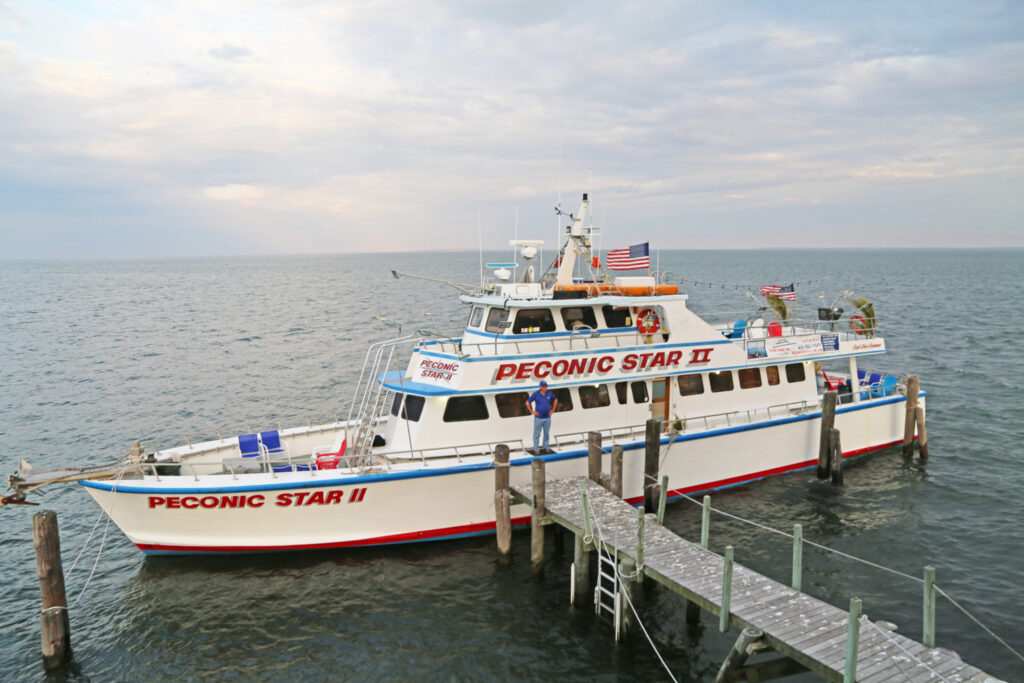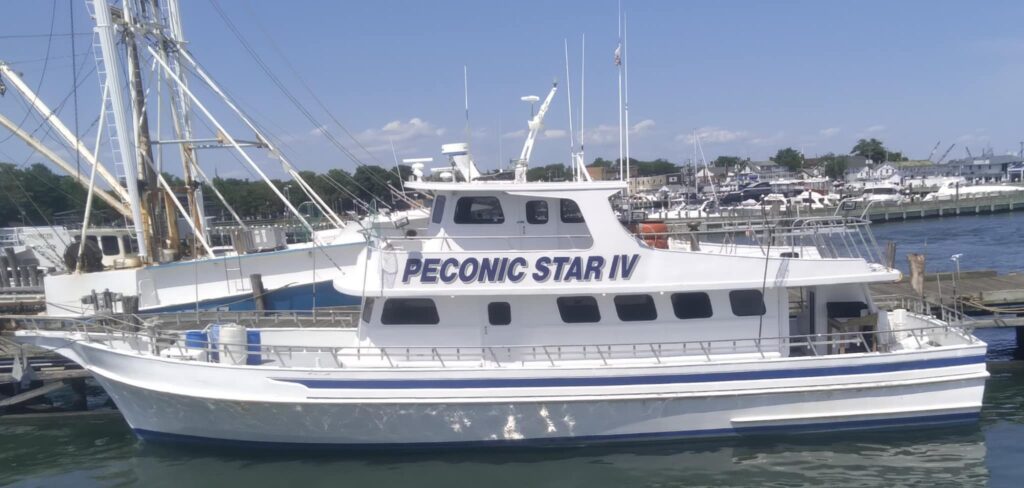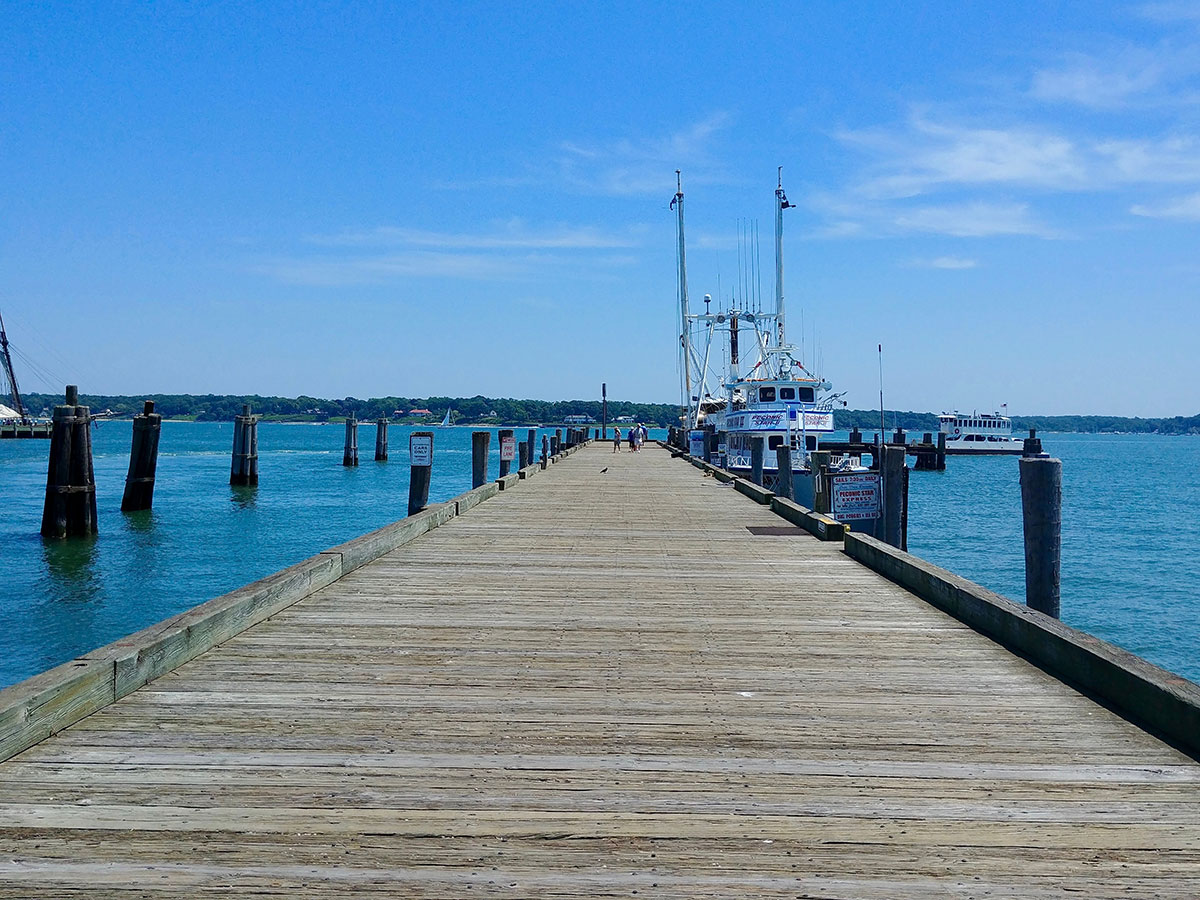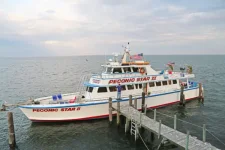End of an Era:
Peconic Star Fleet Closes After 43 Years of North Fork Fishing Legacy
Peconic Star Fleet Closes After 43 Years of North Fork Fishing Legacy
A deep dive into the closure that signals broader challenges for Long Island's maritime heritage

GREENPORT, NY — The salt-stained decks of Peconic Star III and Peconic Star IV will no longer echo with the excitement of anglers hauling in their catch. After 43 years of serving the North Fork fishing community, Peconic Star Fleet has permanently closed its operations, marking the end of one of Long Island's most enduring charter fishing dynasties.
The Final Voyage
The announcement came with the stark brevity typical of seasoned mariners. Posted on the company's website Tuesday, September 16th, the message read simply: "Out of business, lost our lease. From Capt. Dave Brennan to Capt. Arnold 'Speedy' Heubert, it was a great run. Thanks to all our great and loyal customers."For Captain Paul Ripperger, a longtime employee who became the face of many Peconic Star excursions, Sunday's final trip was deeply emotional. "Well that's it. The party is over," he wrote on Facebook. "After more than 45 years of serving the North Fork and Long Island fishing communities, the Peconic Star Boats have sailed our last trip. It was a bit of a somber day spent with lifelong friends."
The closure represents more than just the end of a business — it's the conclusion of a maritime tradition that began when disco ruled the airwaves and Ronald Reagan occupied the White House.

A Disputed Narrative
While owner Arnold "Speedy" Heubert cites a lost lease as the reason for closure, the story may be more complex than initially appears. Greenport Mayor Kevin Stuessi pushed back against this characterization, telling The Suffolk Times that village officials were surprised by the company's decision."The village absolutely would have liked to renew their leases," Stuessi emphasized. "We've not heard anything from them, and we've heard rumors that they were selling."
This disconnect between the official village position and Heubert's claims suggests underlying factors that extend beyond simple lease negotiations. According to Ripperger, both vessels have already been sold, indicating the closure was a planned business decision rather than an abrupt response to lease issues.
Industry insiders familiar with charter operations suggest several possibilities: rising operational costs, insurance challenges, regulatory burdens, or simply an aging owner's decision to retire while the boats still held value. The truth likely combines elements of all these factors.
The Railroad Dock Chronicles
Central to this story is Greenport's Railroad Dock, a facility with a complicated ownership history that reflects the broader challenges facing Long Island's maritime infrastructure. Built originally to serve the Long Island Rail Road's ferry connection, the dock has evolved into a crucial hub for the North Fork's fishing fleet.The dock's management transferred from Suffolk County to Greenport Village in 2014, a move that promised streamlined operations but may have created uncertainty for long-term tenants. Village records from that period show ongoing discussions about lease terms, insurance requirements, and operational responsibilities that charter operators had to navigate.
The Railroad Dock hosts multiple fishing operations, from party boats to private charters, making it one of the most active commercial fishing facilities on the North Fork. Its strategic location provides easy access to both Long Island Sound and the Atlantic Ocean, offering diverse fishing opportunities within relatively short runs.

Industry Under Siege
Peconic Star Fleet's closure occurs amid mounting pressures on Long Island's recreational fishing industry that extend far beyond local lease disputes. Recent developments paint a challenging picture for charter operations throughout the region:Federal Fishing Restrictions Tighten
The August 2025 federal shutdown of the bluefin tuna recreational fishery eliminated a significant revenue stream for charter captains. Bluefin tuna trips commanded premium prices and attracted dedicated anglers willing to pay top dollar for the chance to battle these powerful fish. The closure, implemented due to quota overruns, represents the kind of sudden regulatory change that can devastate charter boat economics.Striped Bass Conservation Measures Loom
The Atlantic States Marine Fisheries Commission is actively considering seasonal closure proposals for striped bass fishing, potentially restricting one of the most popular target species for charter operations. These measures, driven by concerning population data, could eliminate fishing opportunities during peak revenue periods.Rising Operational Costs
Charter boat operators face escalating expenses across multiple categories:- Fuel costs remain volatile, with diesel prices significantly impacting trip profitability
- Insurance premiums have increased substantially, particularly for commercial fishing operations
- Marina fees continue rising as waterfront property becomes increasingly valuable
- Equipment and maintenance costs climb with inflation and supply chain challenges
Regulatory Complexity
The web of federal, state, and local regulations governing charter fishing operations has grown increasingly complex. From Coast Guard requirements to state licensing, environmental compliance, and local permitting, the administrative burden on small operators continues to expand.The Human Cost
Beyond the business statistics lies the human impact of Peconic Star Fleet's closure. Captain Paul Ripperger, whose infectious enthusiasm and deep knowledge of local waters made him a favorite among regulars, now faces an uncertain future. His social media posts reveal the emotional toll of watching a maritime tradition end.The closure also affects the broader North Fork community. Local tackle shops, restaurants, and lodging establishments that depended on charter fishing customers will feel the economic ripple effects. The loss of a major charter operation reduces the area's appeal as a fishing destination, potentially impacting tourism revenue across multiple sectors.
Regular customers, some of whom fished with Peconic Star for decades, describe the loss in personal terms. These weren't just fishing trips — they were annual traditions, father-son bonding experiences, and sources of lifelong memories.
A Legacy Measured in More Than Fish
Founded in 1982 under Captain Dave Brennan's leadership, Peconic Star Fleet witnessed and participated in the evolution of North Fork fishing. The operation survived economic recessions, weather disasters, regulatory changes, and shifting tourist preferences that eliminated many competitor operations.Under Brennan and later "Speedy" Heubert, the fleet built a reputation for consistent service and fish production. Their daily trips targeting porgies, sea bass, fluke, and stripers became fixtures of the Greenport waterfront scene. The boats' distinctive profiles were as much a part of the harbor landscape as the village's historic buildings.
The company's longevity speaks to the dedication of its operators and the loyalty of its customer base. In an industry where many charter operations struggle to survive their first five years, 43 years represents genuine achievement.
What Remains
While Peconic Star Fleet's departure creates a significant void, Greenport's fishing scene continues with several other operations:- East End Charters operates from nearby Manhasset Avenue
- Fish the Fork provides service from Mattituck
- Various smaller charter operations serve specific niches
- Party boat operations continue from other North Fork ports
Mayor Stuessi's assertion that the village wanted to renew Peconic Star's lease suggests Greenport remains committed to supporting its fishing industry. The challenge lies in attracting new operators willing to invest in vessels and infrastructure while navigating the regulatory and economic challenges that contributed to Peconic Star's closure.
Broader Implications for Long Island Fishing
Peconic Star Fleet's closure reflects trends affecting charter fishing operations throughout Long Island and the broader Northeast. Industry surveys indicate that smaller, family-owned operations face particular challenges in adapting to modern regulatory and economic realities.The consolidation trend favors larger operators with multiple revenue streams and greater financial resources to weather temporary setbacks. Traditional single-boat charter operations, once the backbone of the industry, increasingly struggle to maintain viability.
This shift has implications for fishing access and community character. Large commercial operations often focus on volume and efficiency rather than the personalized service and local knowledge that characterized operations like Peconic Star Fleet.
Looking to the Future
The Railroad Dock will continue serving Greenport's remaining fishing fleet, but Peconic Star's absence creates both challenges and opportunities. The available dock space might attract new operators, potentially bringing fresh approaches to charter fishing in the area.However, the underlying factors that contributed to Peconic Star's closure — regulatory pressure, rising costs, and market challenges — remain unchanged. Any new operation will face the same fundamental challenges that ultimately overwhelmed a 43-year-old established business.
The village's role becomes crucial in determining whether Greenport maintains its position as a major North Fork fishing destination. Supportive policies regarding leases, fees, and operational requirements could help attract quality operators to fill the void.
The End of an Era
As Peconic Star III and Peconic Star IV begin new chapters under different ownership, they carry with them the memories of countless fishing adventures that originated at the Railroad Dock. Captain "Speedy" Heubert's decision to close rather than continue fighting economic and regulatory headwinds represents a pragmatic conclusion to a maritime success story.For the thousands of anglers who experienced their first taste of offshore fishing aboard a Peconic Star vessel, or who made it their regular weekend tradition, the closure marks the end of more than just a charter service — it's the conclusion of a chapter in their own fishing stories.
The North Fork's fishing industry will adapt and continue, as it has through decades of change. But the particular combination of experience, service, and maritime tradition that Peconic Star Fleet represented may prove irreplaceable, leaving a permanent gap in Greenport's waterfront character.
As Captain Paul Ripperger noted in his final Facebook post, "the party is over" for Peconic Star Fleet. But for those who experienced the magic of a perfect day on the water with this legendary operation, the memories will endure long after the boats have sailed to new harbors.
Sources:
- The Suffolk Times
- Peconic Star Fishing Website
- Village of Greenport
- The Fisherman Magazine
- Various industry sources and public records
The Railroad Dock Chronicles
Central to this story is Greenport's Railroad Dock, a facility with a complicated ownership history that reflects the broader challenges facing Long Island's maritime infrastructure. Built originally to serve the Long Island Rail Road's ferry connection, the dock has evolved into a crucial hub for the North Fork's recreational fishing charter fleet.The dock's management transferred from Suffolk County to Greenport Village in 2014, a move that promised streamlined operations but may have created uncertainty for long-term tenants. Village records from that period show ongoing discussions about lease terms, insurance requirements, and operational responsibilities that charter boat operators had to navigate.
The Railroad Dock hosts multiple recreational fishing operations, from party boats to private charters, making it one of the most active sport fishing facilities on the North Fork. Its strategic location provides easy access to both Long Island Sound and the Atlantic Ocean, offering diverse fishing opportunities within relatively short runs.

